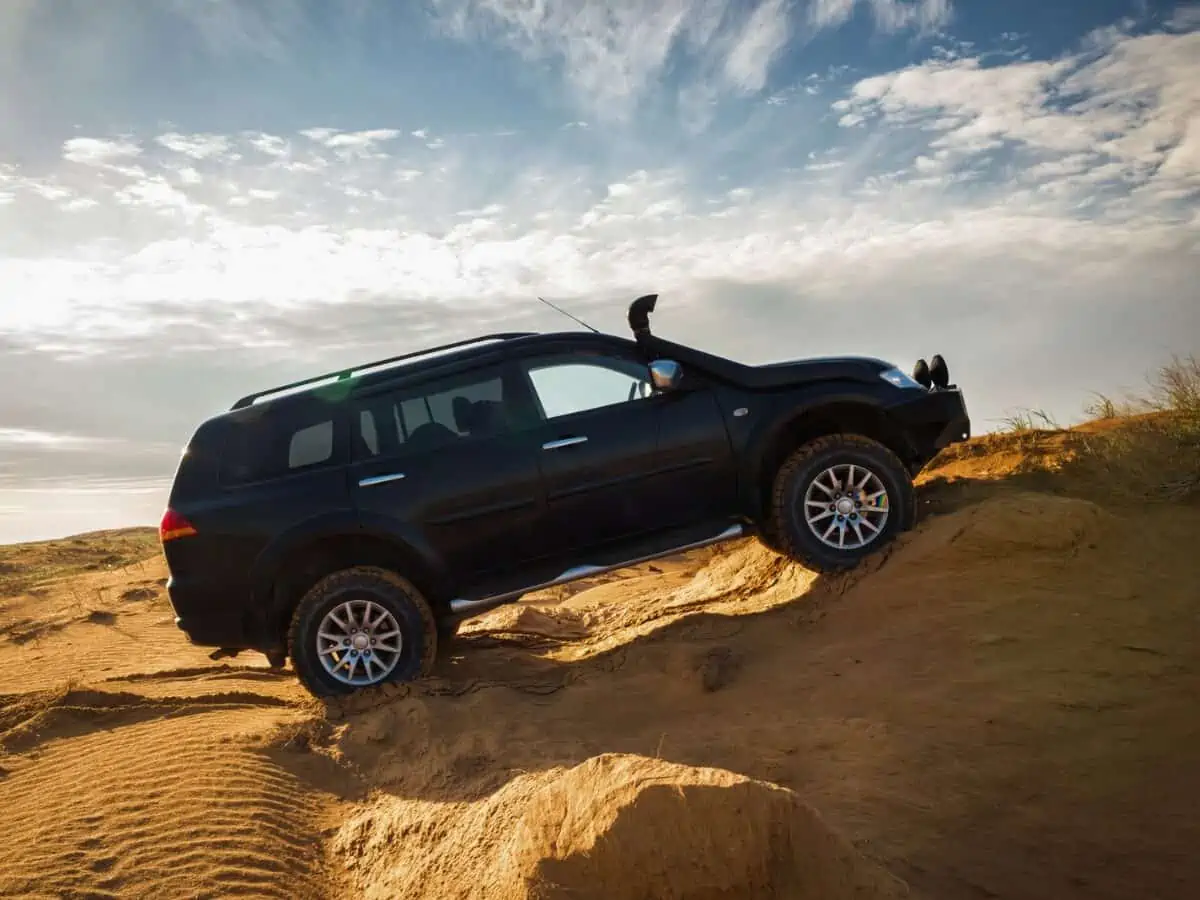Share the post "Steering Clear of AWD: Why Houstonians Don’t Need It"
All-wheel drive has a reputation for being reliable in rugged terrains and harsh weather, but this can leave you wondering: do I need AWD in Houston, or is that too excessive?
The topography and climate in Houston don’t require AWD vehicles. You can still opt for AWD, but some people would consider it overkill, considering the potential expenses.

Is AWD Popular in Houston?
No, the AWD drivetrain isn’t a popular option in Houston. It’s not even that popular in Texas as a whole.
According to CarMax’s estimates, 4WD and AWD cars only take up a 14.69% share in the total car sales from CarMax stores in Texas. This estimate drops to 12.43% when we narrow the scope to Houston.
To put things in perspective, the 4WD and AWD models take up a whopping 72.64% in Colorado, so you can see that there’s a huge difference between the two states. Meanwhile, these drivetrains are even less popular in Florida, Arizona, and Louisiana than in Texas.
So, generally speaking, 4WD and AWD cars don’t do particularly well in the south.
4 Reasons Why You Don’t Need AWD in Houston
The main appeal of the AWD drivetrain is that it produces maximum traction on each of the four wheels. This makes it a highly functional option on slippery roads in snowy and icy areas.
So, if your place of residence or work takes you on roads with those conditions, then for all intended purposes, an AWD vehicle is necessary for you. However, that’s not the case for a lot of people living in Houston.
Let’s see why that is.
1. The Flat Landscape in Houston Doesn’t Call for AWD
Houston is known as one of the flat cities in the U.S. For one, the highest point of elevation above sea level rises just about 150 feet. Plus, the majority of the land sits on former forest land and a massive expanse of grassland.
With that kind of flatland terrain, it serves no real purpose to have a drivetrain system that gives power to each of the four wheels. That could be the most common reason why people don’t find AWD a practical option in Houston.
2. The Winters in Houston Aren’t Harsh
Houston’s climate is mostly humid subtropical, which means it’s hot and humid in summer. On the other hand, winter in Houston is considered mild.
It does snow occasionally in Houston. There were even 20 inches of snow back in 1895!
That said, snowfall isn’t a regular occurrence at all. For the most part, snow isn’t much of a concern or risk for motorists. So, AWD loses one of its main appeals here.
3. The AWD Expenses Can Be Overwhelming
The AWD drivetrain system’s differentials and axles can be much more complex than the regular RWD and FWD. For example, computer-controlled components regulate the engine’s dispersal of power to each of the four wheels.
These factors can guarantee better traction but could also translate to costly maintenance. Plus, both 4WD and AWD vehicles can consume more fuel due to mechanical resistance and extra car weight.
So, if you end up getting an AWD, you might need to put more money into:
- The vehicle’s price tag
- Frequent tire replacements
- Poor gas mileage
So, not only is AWD an unnecessary type of vehicle in Houston (function-wise), but the expenses can also be unreasonable for some drivers.
4. There Are Plenty of Other Options
Since Houston is practically flat with a moderate climate, AWD could be an overkill if your main concern is driving around the city roads.
So, instead of spending more money for an advanced drivetrain, you can set aside some of that budget for tires for an FWD or an RWD. After all, a good set of all-season tires can make all the difference, especially when it rains.
You might also want to focus on other aspects, like ABS and stability control. These can help boost the car safely, regardless of the drivetrain itself.

Choosing the Right Drivetrain in Houston
All-wheel drive isn’t a go-to option for flat cities like Houston. Front-wheel and rear-wheel drives, on the other hand, can be more economical for many city drivers.
Here are some of the alternatives that you might want to consider instead of AWD:
Front-Wheel Drive (FWD)
With fewer moving parts, the FWD configurations directly drive the front wheels. Overall, this drivetrain is popular among smaller cars like sedans and subcompact SUVs, which you might consider the typical city-driving vehicles.
Rear-Wheel Drive (RWD)
As the name implies, the power from the engine in RWD goes to the rear wheels through robust axles. If you prefer a higher horsepower engine that offers a more engaging experience, then the RWD drivetrain could be a good option to consider.
This type is common among luxury and executive cars, pickup trucks, bigger SUVs, and high-performance sports cars.
Four-Wheel Drive (4WD)
Many people tend to use the terms 4WD and AWD interchangeably, but they’re two different drivetrains. 4WD transmissions are usually for consumers whose lifestyle and driving include off-roading.
It’s still not a common option in Houston. However, the 4WD is a feature that you can turn on and off. So, on regular flatland driving, you can have the vehicle run like a regular two-wheel drive.
AWD in Houston: FAQs
Are AWD vehicles safer?
AWD cars can offer more grip on particularly slippery or rugged roads. However, this notion can sometimes lull people into a false sense of security during heavy snowfall. This can cause the drivers to lose control if they brake or turn suddenly.
When would AWD come in handy?
If you live in Houston but tend to drive off-roads a lot instead of driving in the city, you might want to consider AWD. Some people find AWD cars generally more fun to drive, too.
References:
- CarMax’s estimates: carmax.com
- 150 feet: topographic-map.com
- 20 inches of snow: abc13.com
Share the post "Steering Clear of AWD: Why Houstonians Don’t Need It"
Christian Linden is a seasoned writer and contributor at Texas View, specializing in topics that resonate with the Texan community. With over a decade of experience in journalism, Christian brings a wealth of knowledge in local politics, culture, and lifestyle. He holds a Bachelor's degree in Communications from the University of Texas. When he's not writing, Christian enjoys spending weekends traveling across Texas with his family, exploring everything from bustling cities to serene landscapes.











